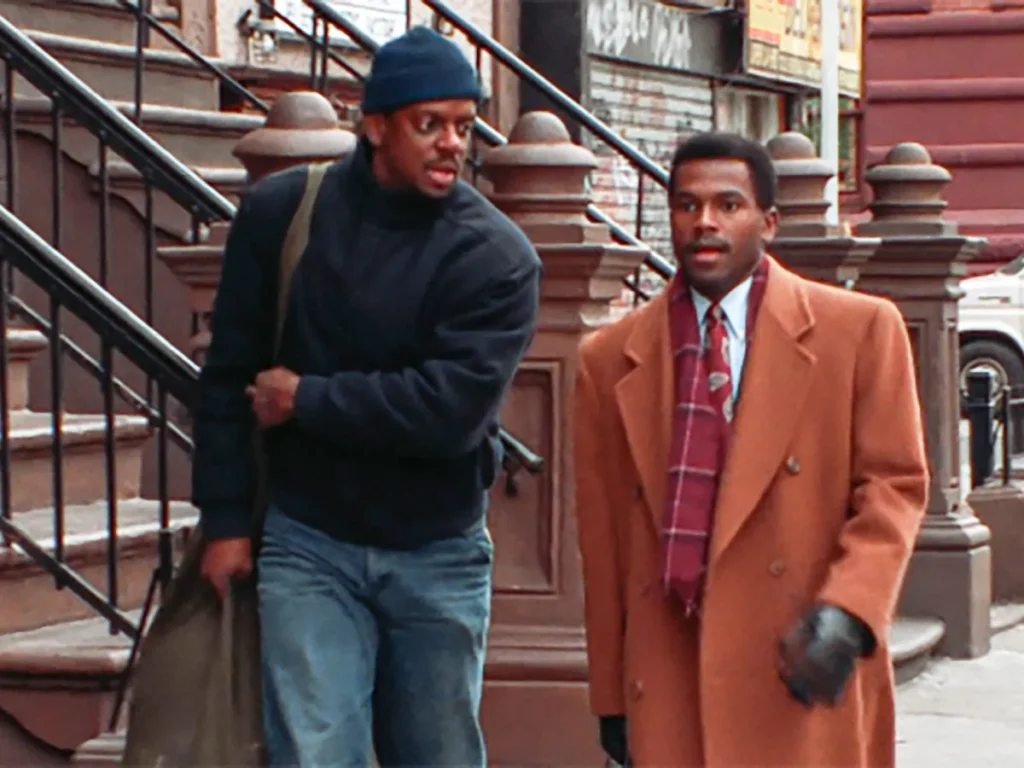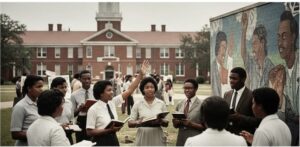Short Film ‘Harlem Grace’ chronicles extraordinary lawyer, activist Joe Holland

Initially, the thirty-two minute short film “Harlem Grace” felt like an extended Public Service Announcement. Then it felt like a video a church might put together for a special holiday service or program or initiative. It turns out that “Harlem Grace,” which chronicles the incredible community work of lawyer, politician, ordained minister, and activist Joe Holland, was actually a senior thesis of NYU film student turned full-fledged filmmaker, Allen Wolf.
Given the normal financial position of college students, Wolf attempted to tell the extraordinary story of Holland, a Harlem resident, who committed himself to facilitating the redemption of fallen men.
Holland entered the world under pretty remarkable circumstances. His father, Jerome Holland, broke a number of significant barriers. If Black Excellence was a person, Jerome Holland would be that individual. A graduate of both Cornell University and the University of Pennsylvania, he achieved many African American firsts: the first to sit on board of the Stock Exchange, head Massachusetts Institute of Technology’s governing body, chair the American Red Cross board of governors, and first African American to play on Cornell University’s football team. He was later inducted into the College Football Hall of Fame. Jerome Holland was also ambassador to Sweden and president of both Hampton University and Delaware State College. In 1985, he was posthumously awarded the Presidential Medal of Freedom.
Jim Holland, who like his father earned his bachelor’s and master’s degrees from Cornell University, had very large shoes to fill, and chose to do so by serving the community. As “Harlem Grace” dramatizes, after graduating from Harvard Law School, he returned to New York City and settled in Harlem where he opened a law office and founded a non-profit focused on using a holistic approach to rehabilitate men who were unhoused—most of whom had substance abuse issues.
Though the editing in “Harlem Grace” is skillful if lacking in style or elegance, the dialogue is plodding and graceless. The visual tapestry is serviceable. Again, given that this is a student film, this is perhaps to be expected.
What is good about “Harlem Grace” is the strong and authentic sense of place. Apparently filmed on location in Harlem in the early- to mid-’90s, it ably depicts the gritty atmosphere of many parts of pre-gentrified 1980s Harlem. The main character is played with wide-eyed alacrity and earnestness by Michael Anthony Walker, with whom the camera has a love affair. Walker nimbly embodies the single-minded drive and intensity toward community uplift often fueled by youthful naivete. “Harlem Grace” focuses on the relationship between Holland, who was also an outspoken Christian, and Harvey, an unhoused man with a crack addiction. To say their relationship is fraught is an understatement and the audience experiences all of Holland’s hopes and shattering disappointments as he works with Harvey and the other men he ultimately recruits into his shelter. Holland provides not only a bed, but life skills and a roadmap to a new and better life.
Originally released in 1994. Morning Star Pictures is celebrating the film’s 30th anniversary with a re-release in April. The film, according to a press release, “Has been restored, updated, and remastered with a high-definition scan of the original film, additional footage, and a remastered soundtrack with new music.” In 1994, it was also a finalist for the Student Academy Awards and Producers Guild of America Awards. The updated version has won awards from the New York International Film Awards, Berlin Shorts Award, and the Hollywood Just4Shorts Film Competition.
Though it lacks charm or even very much technical dexterity, “Harlem Grace” is real life evidence that one person can make a difference and that anyone, no matter how far they have fallen, can turn their life around.
Starting April 2, the film “Harlem Grace” will be available on VOD and will be available on Amazon Prime Video April 27.








